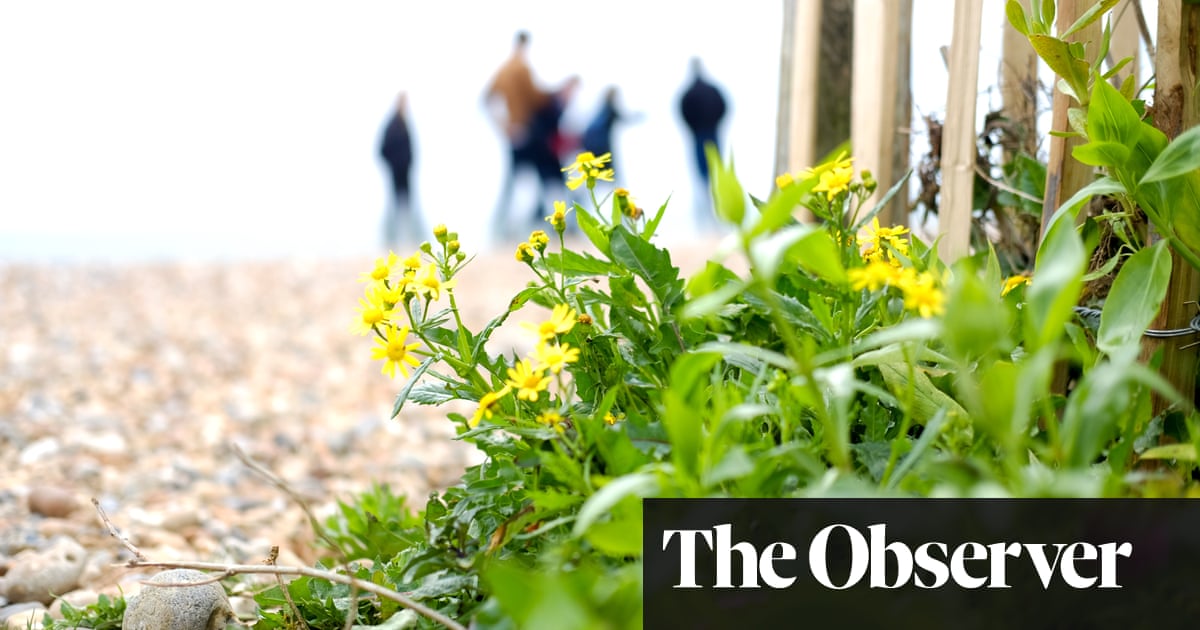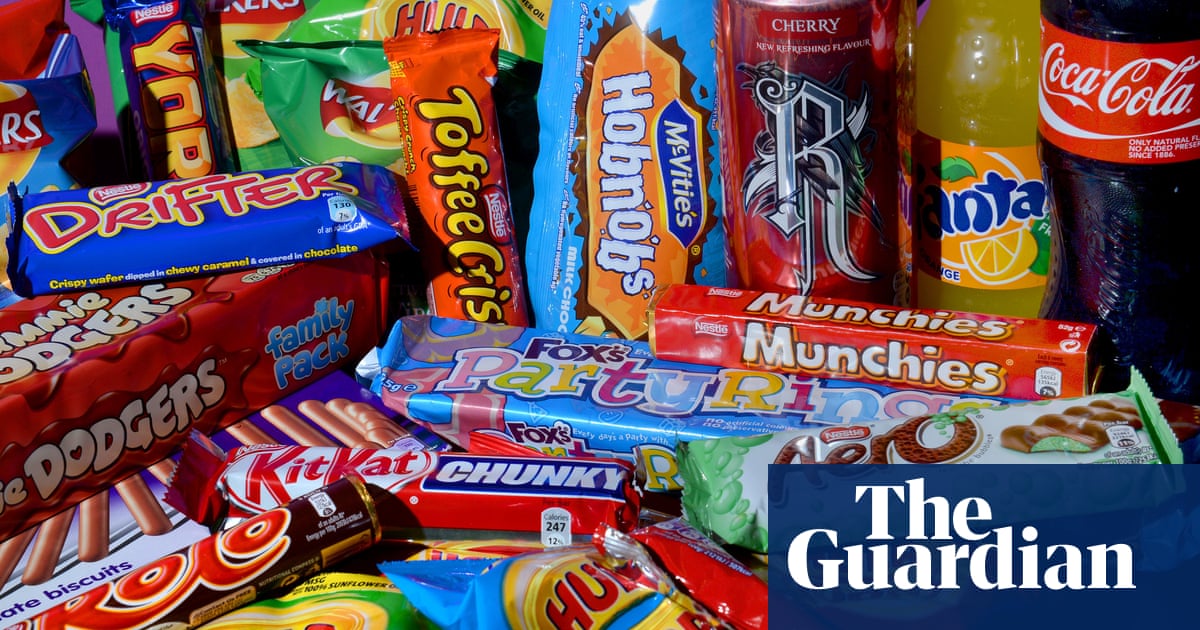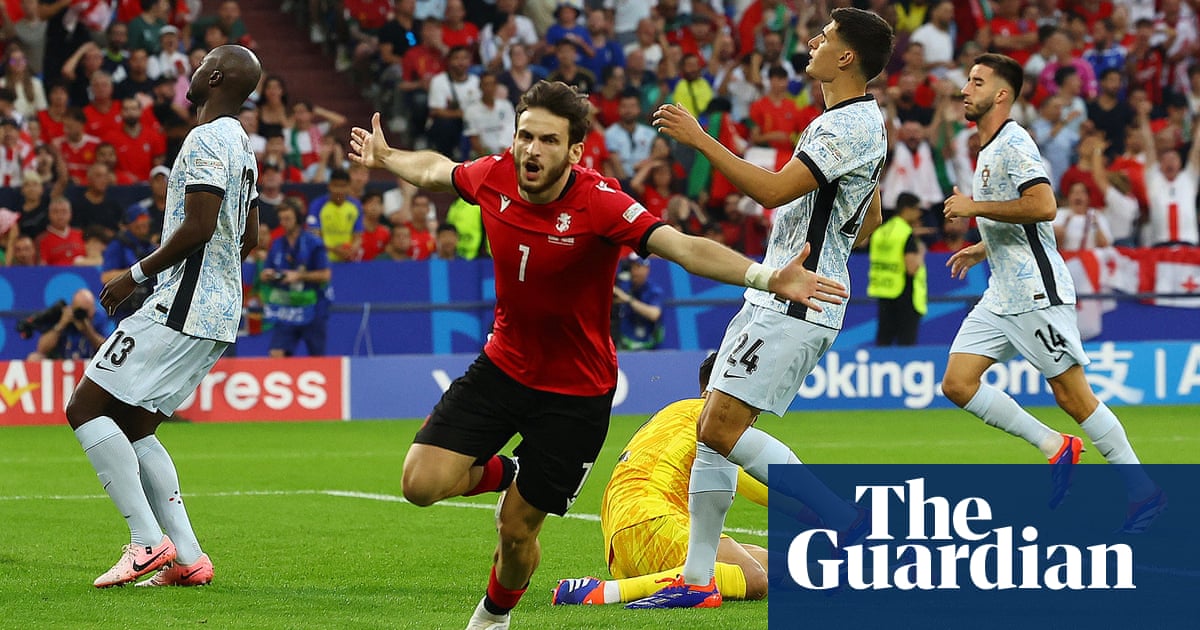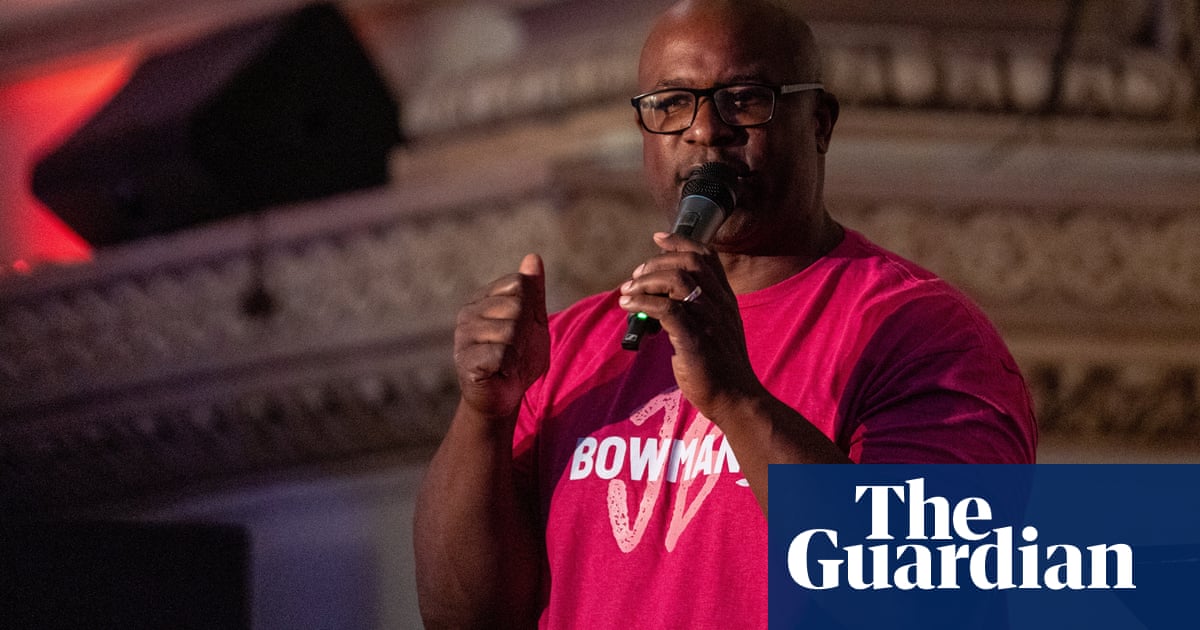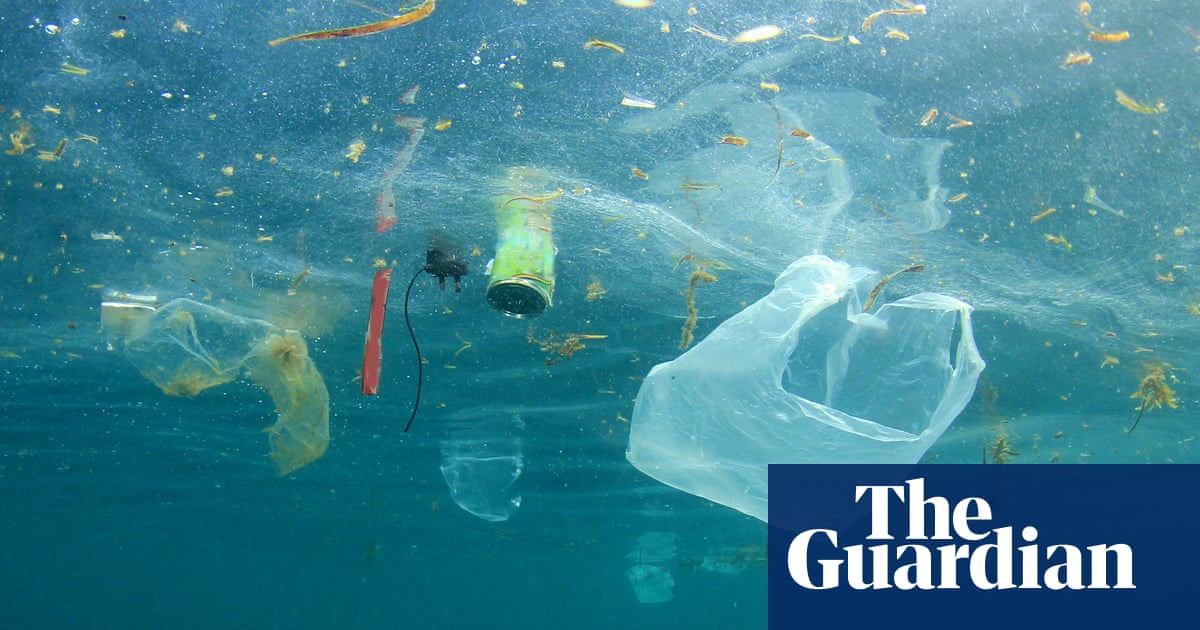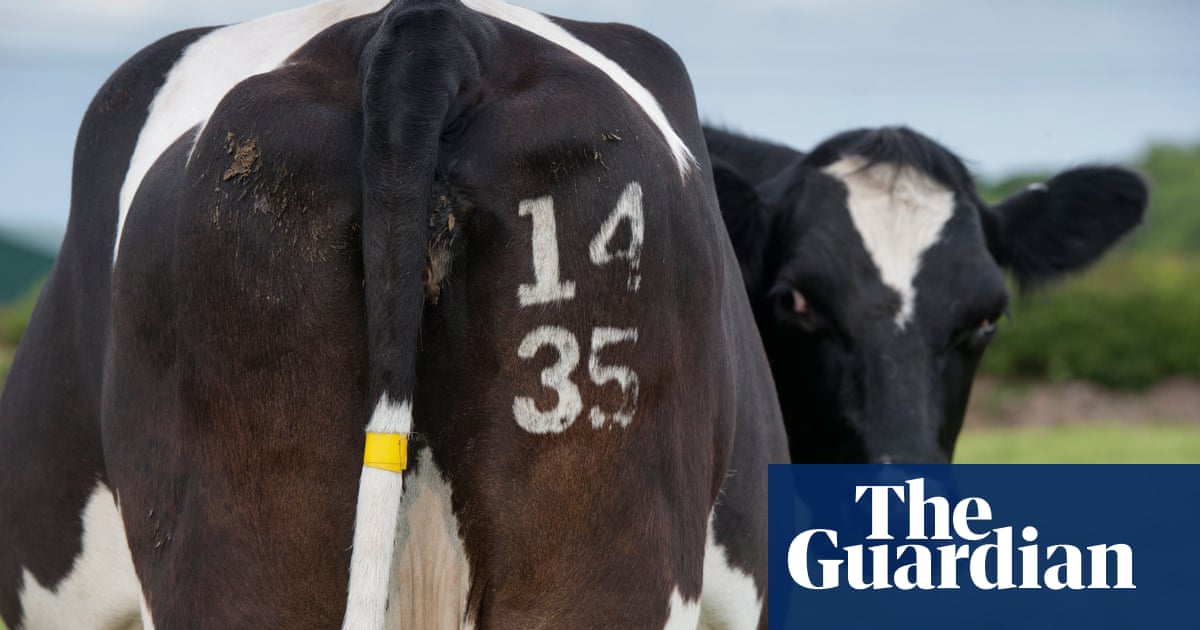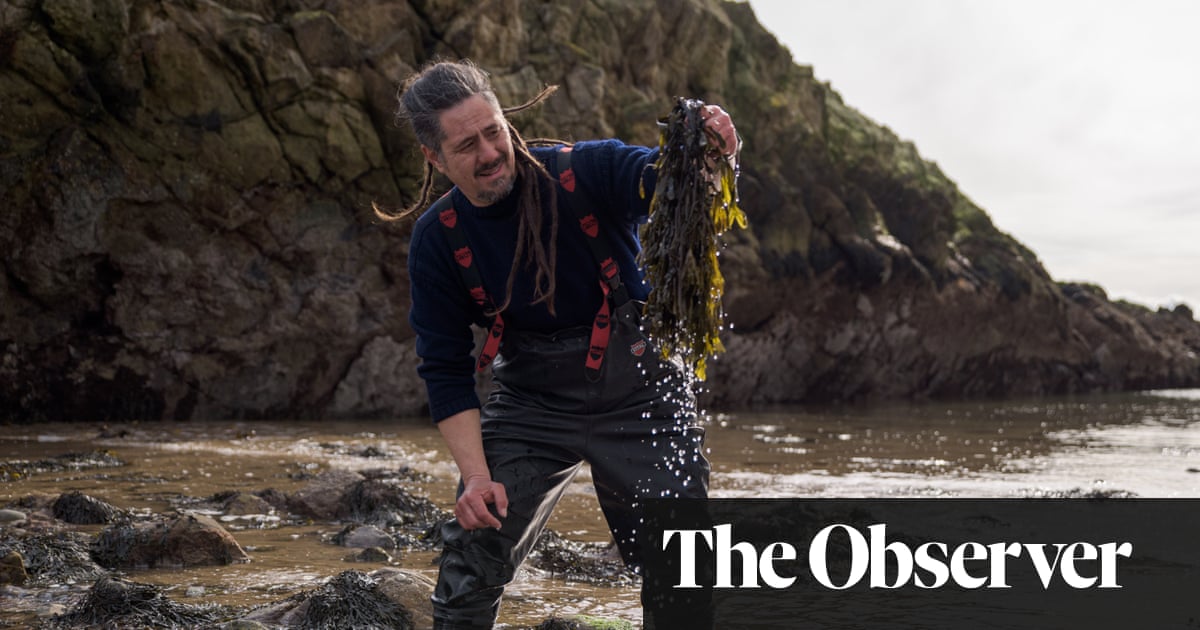On a blustery morning in May on Shoreham-by-Seaâs west beach, Eric Smith and George Short are pointing out treasures the waves have left on the tideline. Cuttlefish bones and balls of whelk eggs, they say, are evidence of recovering marine habitats.
âJust give nature a bit of space and it will come backâ says Smith, 76, a former lorry driver by trade, freediver by choice. He first started diving in Sussex coastal waters at the age of 11, and still recalls the underwater âgarden of Edenâ of his childhood, a kelp forest teeming with bream, lobsters and cuttlefish that stretched 40km between Shoreham and Selsey Bill. It vanished after years of intensive trawling, a destructive form of fishing involving dragging heavy nets along the seabed.
For decades, Smith was a lone voice in his community, battling to stop trawlers further destroying the seabed that hosted the kelp forest, a nursery and spawning ground for fish and other marine life and one of the countryâs most biodiverse ecosystems.
Today, he is part of Sussex Bay, a combination of grassroots conservationists, locals, businesses and other groups, spearheaded by Adur and Worthing councils, dedicated to a pioneering project: the rewilding of rivers, land and seascape centred along a 100-mile stretch of coastline in Sussex.
-
Left: George Short, a coordinator at Sussex Kelp Recovery; right: Eric Smith of Rewilding Britain. Photographs: Urszula SoÅtys/the Guardian
The project, awarded £100,000 in March by Rewilding Britain, covers an area encompassing 11 councils and a million people. It could see oyster beds, salt marsh and kelp reintroduced to help combat the climate crisis and encourage wildlife. The scheme, the first of its kind, also encompasses the River Adur, which flows 20 miles through the rolling South Downs national park to the sea, close to Shoreham. It aims to crowdfund a further £1m, for additional projects, this month.
At its heart lies the kelp forest, 96% of which vanished between the late 1980s and the centuryâs end. It did not survive a huge storm in 1987, after years of trawling in one of the worldâs busiest shipping routes, the English channel. Three years ago, amid concern over decline in fish catches, a bylaw was passed by the Inshore Fisheries and Conservation Authority (IFCA) to ban nearshore trawling from 300 square km of Sussex seabed, to protect fish and marine habitats and support sustainable inshore fisheries.
Smith and other freedivers, including his daughter, Catrine Priestley, who runs the Sussex Underwater community group, have begun filming the signs of recovery, including new mussel beds that are binding the seabed back together.
âIâve seen kelp washed up here in the winter, for the first time in 10 years,â says Smith, who still dives off his boat regularly, despite being unable to walk far, after having both hips and knees replaced.
âWeâve had the biggest bed of mussels stretching from Lancing to Brighton. I saw an electric eel last year and an angel shark, which is critically endangered. First one Iâve seen since 1966. Also the bream are coming back. They are very vulnerable to bottom trawling â and one of the species targeted by the vessels.â
-
Washed-up kelp is being seen for the first time in a decade, say local divers. Photograph: Dan Smale/Sussex Wildlife Trust
A sudden streak of sunshine through the grey clouds lifts the seaâs colour from slate to a warmer shade of grey, but the recovery described by Smith remains hidden to non-divers. The Sussex Bay project aims to raise awareness of recovering land, sea and river ecosystems and the benefits they can bring to communities.
âPeople donât know what is on the coast here,â says Short, the kelp recovery coordinator at Sussex Kelp Recovery Project. âTo many, itâs grey and empty. But Eric, Catrine and others provide a window beneath the waves.â
âWe have lots of anecdotal observations from the freediving community, citizen scientists and sea swimmers, about changes,â she says. âThey show how if we remove this pressure on nature, things grow back.â
Annual dolphins and porpoise sightings are also up in Sussex, from a reported 31 in both years 2018 and 2019, to 56 and 57 in 2022 and 2023, after the trawling ban.
âPreviously, weâve had reports of cetaceans offshore over winter and inshore between May and September,â says Thea Taylor, the managing director of Sussex Dolphin Project. âNow we are starting to see them inshore all year round.â
She canât say for sure the reason for the increased sightings, but says there are more mussels, which dolphins eat, and less disturbance since the trawling ban.
âDolphins follow their bellies,â Taylor says. âThey are good indicator species. If fish stocks drop off, they go elsewhere.â
A study of another trawling ban, in Lyme Bay, Dorset, published in January, showed a 94% increase in reef species and 400% increase in abundance of fish species over a 15-year period.
The west half of Sussex, from Newhaven to Bognor Regis, is good for dolphin watching, while porpoises are common in the east, from Newhaven to Rye, Taylor says.
Wildlife also brings tourists. It has been estimated that a healthy kelp forest in Sussex could be worth up to £3.1m, taking in fishery resources, coastal protection, water quality maintenance, carbon sequestration, as well as tourism and recreation, according to a study by the Marine Alliance for Science and Technology for Scotland.
A few miles inland, near the Norman village of Bramber, the green paths of the South Downs Way run along the banks of the Adur, as swans make their way downstream. About 27 farmers and landowners have signed up to the Weald to Waves project, which aims to create a nature-rich corridor to the sea, by reviving floodplains, increasing biodiversity and restoring the river to its prewar, more free-flowing state. Reducing ploughing, for instance, will cut the amount of sediment flowing into the sea, further boosting the health of the kelp.
Dean Spears, who heads up Sussex Bay, hosted by Adur and Worthing councils on behalf of the 11 councils in the area, a position funded by Esmée Fairbairn Foundation, says: âYou can walk for hours here on the South Downs Way, from Sussex Bay to the south along the River Adur visiting wonderful places along the way through the South Downs and beyond.â
The nature corridor will eventually link up with the Knepp estate, West Sussex, home to the first white stork born in the wild in Britain for 600 years, and one of the UKâs best-known rewilding projects, run by biodiversity campaigner Isabella Tree and her husband, Charlie Burrell.
âI see Sussex Bay as a blue mirror to the South Downs,â says Paul Brewer, director for sustainability at Adur and Worthing councils and founder of Sussex Bay. âThis is a story of rewilding, but itâs also a story about a different future where seascape and rivers are much more appreciated and are thriving.â
